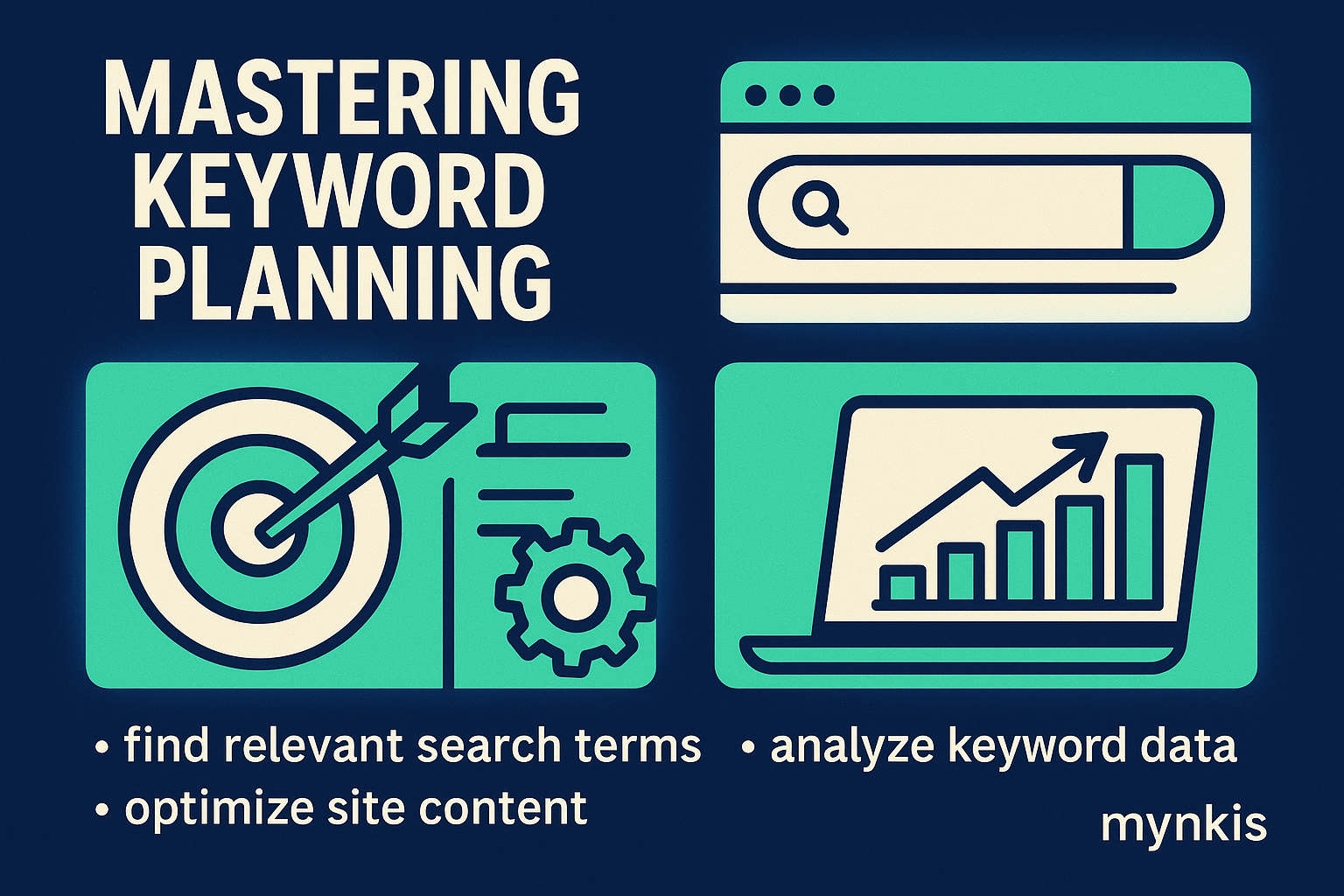Schedule a Demo
I've worked with countless retailers who believe ads are the key to boosting their online store's visibility. But let me share a different approach that often yields a better ROI: optimizing for search engines through smart keyword planning. When you focus on SEO, you're not just boosting your visibility; you're ensuring that the traffic you attract is already interested in what you offer.
The foundation of any effective SEO strategy begins with keyword planning. If your keywords don't align with what your potential customers are searching for, your online store could be invisible to them. Research from Moz and Search Engine Journal consistently shows that the top three organic search results get over 60% of all clicks. That’s the audience you want to capture.
Keywords are more than just words; they represent the intent behind the search. When planning keywords for an online store, consider these intent categories:
Tailoring your keyword strategy to these different intents can dramatically improve conversion rates because your content will meet users where they are in their buying journey.
While targeting highly competitive terms like “best smartphones” may seem appealing, the long-tail keywords like “best smartphones under $500” can lead to higher conversion rates. Long-tail keywords usually have lower competition, making it easier for your store to rank higher. These specifics are exactly what your customers are looking for when they're ready to purchase.
Keyword research tools are indispensable in your SEO arsenal. Tools like Google Keyword Planner, SEMrush, or Ahrefs allow you to discover what your target audience is searching for, assess the competition for those terms, and select keywords that offer the best chance of ranking highly.
I once helped an electronics retailer who was struggling with visibility. By using tools to uncover long-tail keywords related to tech gadgets and components, we were able to significantly improve their organic search rankings and drive more qualified traffic.
Once you've identified your keywords, it's crucial to weave them into your site thoughtfully. From page titles and meta descriptions to product descriptions and blog posts, every element of your online store needs to reflect these keywords naturally. Overuse, or “keyword stuffing,” can penalize your site’s rankings, so always prioritize content quality.
Effective keyword planning enhances not just your SEO but also your user experience (UX). Keywords should guide you in creating content that addresses customer questions and concerns, making the shopping experience smoother and more engaging. A great user experience keeps visitors coming back and can turn them into loyal customers.
SEO isn't a set-and-forget task; it requires ongoing attention. Keep your keyword strategy relevant by monitoring industry trends and seasonal shifts in consumer behavior. Tools like Google Trends can help you stay on top of what’s current and ensure your site continues to rank for in-demand searches.
Take a page from your competitors. Analyze their keyword usage and rankings to identify gaps in your own strategy or new keywords you might have missed. Competitor analysis can also give you insights into their SEO tactics, which can inspire new angles for your own site's optimization.
For retailers with physical stores, local SEO can drive both online and in-store traffic. Optimizing for local searches with phrases like “best electronics store near me” can enhance your online visibility while attracting local customers to your brick-and-mortar locations.
Voice search is on the rise, and optimizing for it requires focusing on conversational, long-tail keywords. As more consumers use devices like Alexa or Google Home, making sure your keywords align with natural speech patterns can give your online store an edge.
Ethical SEO practices are essential for long-term success. Staying away from black-hat tactics that can harm your reputation or get your site penalized is key. Focusing on providing value to your customers with honest SEO methods ensures sustainable growth.
Ultimately, the goal of SEO should be aligned with building trust and providing value. Based on available research, an SEO strategy that prioritizes customer trust will likely see more favorable outcomes compared to one that focuses solely on driving traffic. Aligning your keywords with your audience's needs means they'll see your brand as a solution, not just another marketing ploy.
